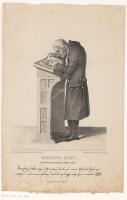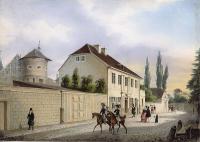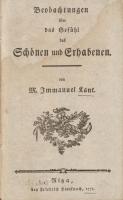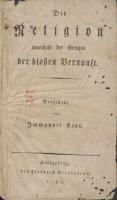Introduction
Three hundred years ago, on 22 April, 1724, Immanuel Kant was born. It is difficult to overestimate his influence on Western thought. Karl Jaspers (Karl Theodor Jaspers, 1883–1969), for example, was certain that the best way to find one's own way in philosophy was to begin with a deep study of I. Kant. In fact, those who immerse themselves in his books do not so much gain a certain amount of information about the world as that they learn to think for themselves. Such a relationship with Kant's philosophy fits perfectly with his motto: ,,Have courage to use your own understanding!” Such a courageous individual with the ability to think critically is a necessary condition for the eternal peace of which Kant dreamed. In fact, peaceful coexistence without wars and conflicts is only possible when people take full responsibility for their thoughts and actions instead of leaving this burden in the hands of authority. This was not only Kant's social-ethical ideal, it was Kant himself – not only in his books, but also in his everyday life. He did not always succeed in living up to this model, but there are not many thinkers in the history of philosophy whose theory was so close to their lives.
The exhibition is divided into three parts. The first reveals some features of Kant's character and some episodes of his everyday life. The second presents some of his works kept in the Wroblewski Library of the Lithuanian Academy of Sciences. The third part focuses on the former owners of the books as presented below.
Design and texts by dr. Kotryna Rekašiūtė, dr. Timofej Murašov
Translated into English by dr. Timofej Murašov
Posted online by Audronė Steponaitienė




